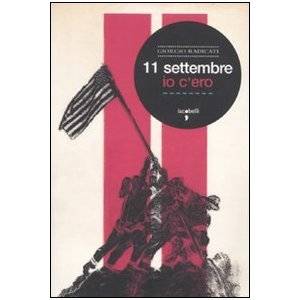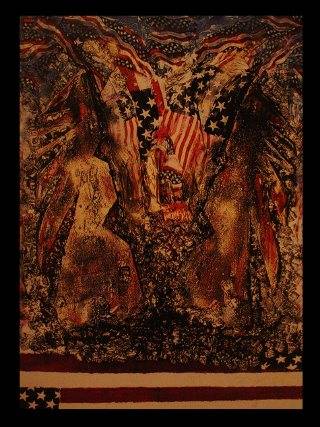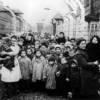9/11 and the Italian Consulate in NY
“Thank you Giorgio, not only for your testimony on the events of 9/11 but, most of all, for the capital of credibility, affection and fellowship you have built around the Consulate in those days, a capital that has allowed all your successors, and me, for sure, to play our role of Consul General here in this city, knowing that we can count on the support of the Italian American and Italian collectivity and that of the American authorities. Thank you so much on behalf of all of us.”
These were the words that Consul General Natalia Quintavalle used to greet Ambassador Giorgio Radicati, who presented his book, a book that is important to him for two reasons: its content, 9/11, and the place where it is presented, that Consulate where he has worked for years.
The audience felt emotion and warm affection for that diplomat who had to face, as Consul General of Italy in New York, one of the hardest moments of history. Some members of the staff who worked with him in those days were present the auditorium as well.
Steve Acunto, Honorary Consul who gave him the “Bravo!” award from the Italian Academy Foundation for his commitment in strengthening relations between Italy and United States, introduced the book that has been published ten years after the tragic event.
It is a must-read: “Giorgio Radicati's approach embraces three points of view. 1) That of the diplomat, 2) That of the New Yorker 3) That of the artist,” Acunto said. “Diplomat because in the book Radicati talks about the implications and the way the world looks at America from the outside. Then he talks about New York and he does it through the eyes of an artist.”
In fact Giorgio Radicati is a painter too, as he painted several touching canvases in those days.
Among the evening’s guests, there was Daniel Nigro. Chief of the New York City Fire Department at the time, who was then appointed Chief after the tragic death of his predecessor, Peter Ganci, who lost his life in the collapse of the North Tower of the World Trade Center. In his speech, Nigro remembered the sensitivity of Radicati, his job in helping Italian-American and Italian families, their comfort and how he felt at home at the Italian Consulate.
Radicati stated that he immediately realized he was living through an historic moment and he knew he would have written a book on the events. When he left New York the book was written in his mind and with time it was actually written on paper.
As he was busy with institutional commitments, completion of the book took a few years.
“In the book - he said - I've tried to emphasize the great professionalism of the staff I had around me, the sense of responsibility felt by every one of them and their courage in facing the situation, for which the developments were still unforeseeable.” He talked about some details, like the hazard coming from the anthrax poisoning, the anti-gas masks sent from Rome and the food supplies for the six following months. “Basically we were living through a war-type situation. What was happening outside wasn't very clear and even the press didn't give us the right information, because they didn’t even know what was happening either.”
Radicati’s words were: “Institutional entities and the delegations of this city worked together to overcome the difficulties. Many came to the Consulate to explain what was happening on the streets. Italian-American associations were crucial too, they were true guards.”
And more words on those days: “I want to thank the Italian-American and Italian doctors of the city that after the tragedy provided information on those who had been hospitalized in order to locate them. The Consulate received 4000 phone calls in those days, calls about missing people, some with no real information, others from the Ministry of the Interior or from the Ministry of Health. There was the danger of giving too much or wrong information, there was the risk that the crisis unit of Rome could provide information that didn’t match with what the Consulate gave. Several other facts are written in an orderly fashion in the book. The Country was isolated, nobody could get outside or inside the Country for a week, so we were basically living in a state of war.”
And when talking about his art pieces, those canvases onto which he wanted to freeze the memories for days, he stopped for a second and added: “I stopped painting right after having taken Riccardo Muti and a band of musicians to Ground Zero where they paid homage to the victims with the notes of Va Pensiero.”






































i-Italy
Facebook
Google+
This work may not be reproduced, in whole or in part, without prior written permission.
Questo lavoro non può essere riprodotto, in tutto o in parte, senza permesso scritto.